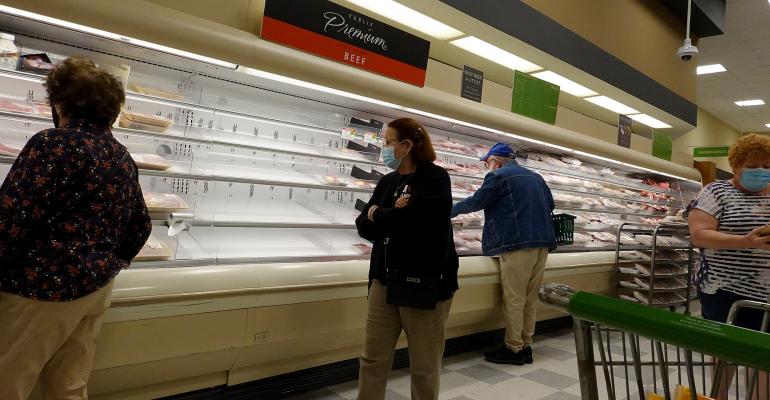(Bloomberg)—Social-media sites are full of photographs of empty grocery-store shelves, and the head of one of the biggest U.S. supermarket chains says the situation will take weeks to improve.
Albertsons Cos. had been expecting that supply outages would be improving by now, but “omicron has put a bit of a dent” in that, Chief Executive Officer Vivek Sankaran said Tuesday. As a result, the company is still contending with a range of products that are out of stock after months of similar headaches.
“We would expect more supply challenges over the next four to six weeks,” he said on a conference call with Wall Street analysts after Albertsons reported earnings. “As a business we’ve all learned to manage it, we’ve all learned to make sure that the stores are still very presentable -- give the consumers as much choice as we can get.”
Omicron is exacerbating disruptions in food supply chains that are already stressed. Rising U.S. infections mean more workers are getting sick at farms, factories, distributors and retailers, crimping the flow of goods to shoppers just as the variant prompts people to eat at home more. Port congestion and winter weather in parts of the country aren’t helping, either.
Online searches are surging for basic products, reflecting consumer anxiety over supplies. As of Tuesday afternoon, the list includes chicken, potatoes, spinach, pasta, meat, lettuce, eggs, cream cheese and cat food.
Shortages appeared most acute for food compared to packaged goods such as cleaning and beauty supplies, according to data from Chicago-based market research firm IRI for the week ended Jan. 9. States with the biggest shortages of food and beverages included Alaska, Alabama, Hawaii, Mississippi and West Virginia.
The Consumer Brands Association, which represents makers of packaged goods, called on the government to facilitate more coronavirus tests.
“The supply chain is fragile and unable to absorb further shocks -- whether winter storms or, far more impactfully, omicron -- and that’s showing up as empty shelves,” said Geoff Freeman, the trade group’s CEO. “In the near term, that means supporting workers who are essential to supply-chain continuity. Testing is the most critical need.”
— Kelly Avellino NBC12 (@KellyAvellino) January 9, 2022
© 2022 Bloomberg L.P.




